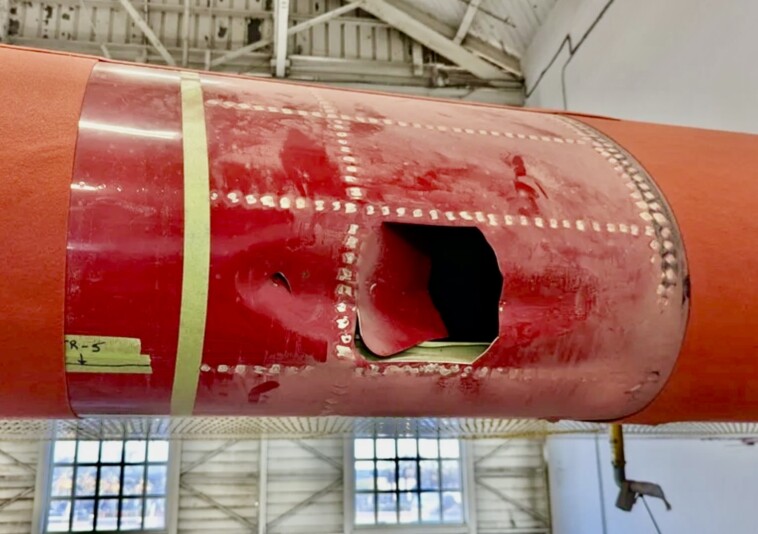The FBI has launched a criminal investigation into a drone that hit one of the planes that was being used to conduct fire suppression operations near Malibu, California.
The Bureau said that they are seeking information leading to the identity of the person operating the drone that collided with a “super scooper” airplane that was combatting the Palisades Fire.
The incident happened on January 9th when “an unauthorized drone flying in violation of an FAA temporary flight restriction (TFR) collided with” the firefighting aircraft.
“The collision left a 3 x 6 inch hole in the left wing. Parts of the heavily damaged drone were recovered,” the FBI said.
Authorities were forced to move firefighting aircraft out of the area after the drone collided with the plane on Thursday. The plane was grounded for several days to be repaired, taking away a key asset for firefighters as the Palisades fire continues to burn. Authorities said that the drones were spotted near the southeastern portion of the fire around 4:40 p.m. on Friday.
The FBI is seeking information that leads to the identity of a UAS pilot whose drone collided with a “super scooper” airplane conducting fire suppression operations at the #PalisadesFire near Malibu, California. Details & and how to contact the FBI here:https://t.co/0FCsCvrgGy pic.twitter.com/MiRuhWWeQP
— FBI Los Angeles (@FBILosAngeles) January 13, 2025
The Federal Aviation Administration (FAA) released a statement on Thursday warning drone operators of the consequences of interfering with firefighting efforts.
“It’s a federal crime, punishable by up to 12 months in prison, to interfere with firefighting efforts on public lands,” the FAA said. “Additionally, the FAA can impose a civil penalty of up to $75,000 against any drone pilot who interferes with wildfire suppression, law enforcement or emergency response operations when temporary flight restrictions are in place.”
Do not fly your drone near or around areas affected by the LA wildfires. Anyone who interferes with emergency response operations may face severe fines and criminal prosecution. If you fly, emergency responders can’t. pic.twitter.com/UE5wqAlR1O
— The FAA ✈️ (@FAANews) January 10, 2025


